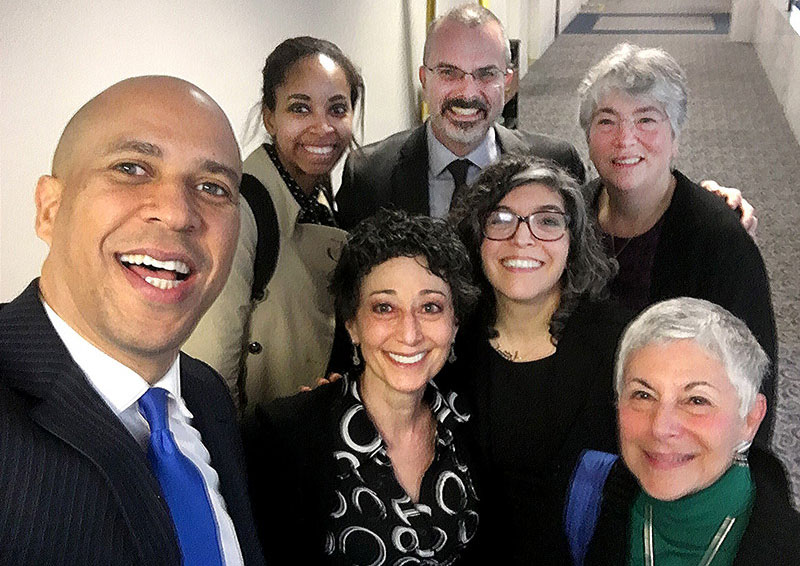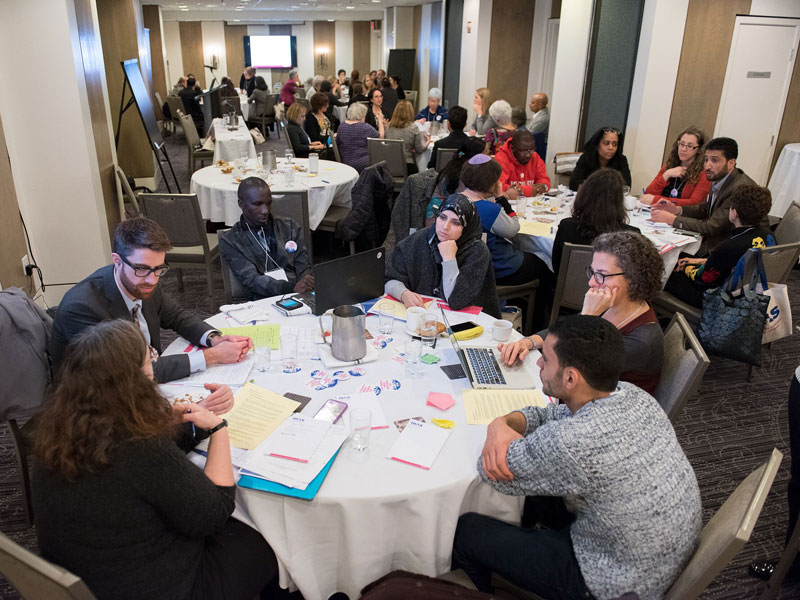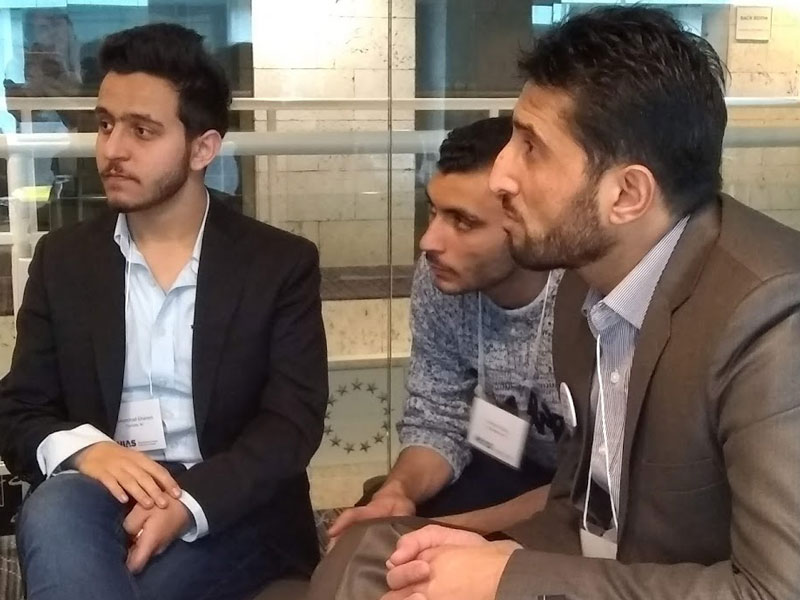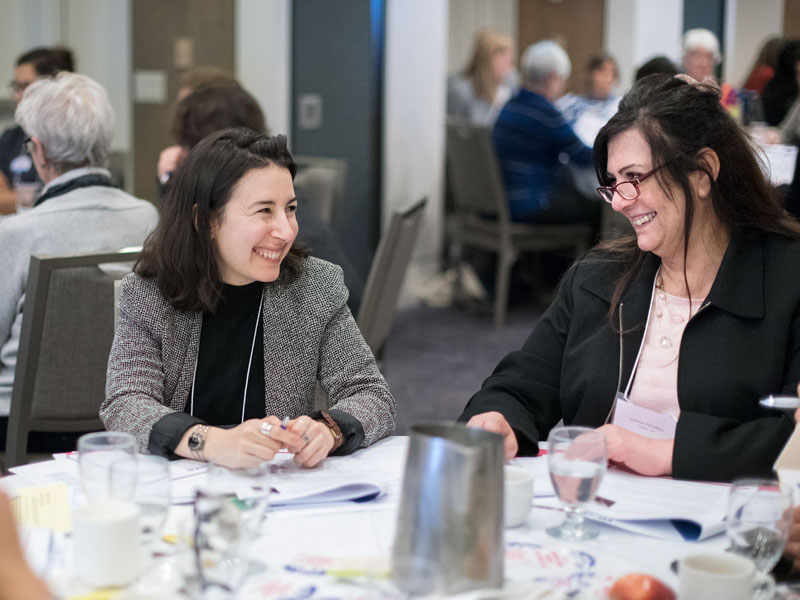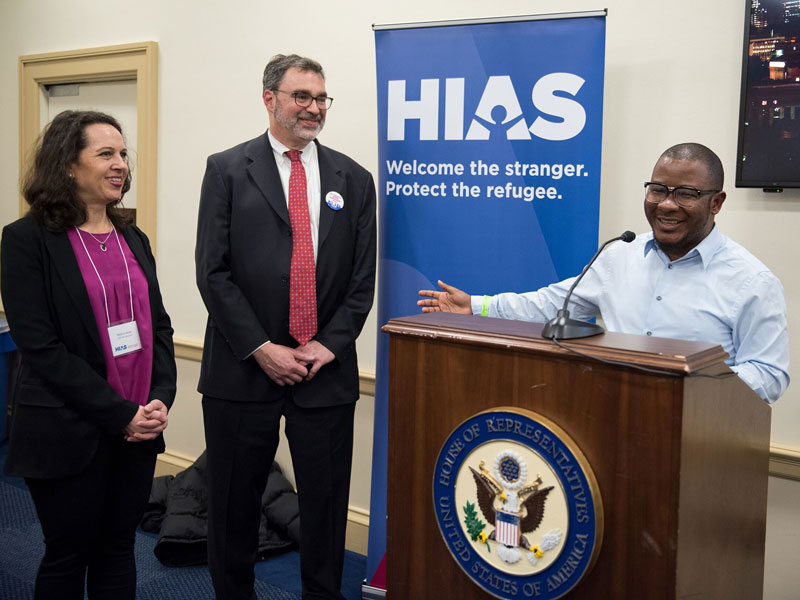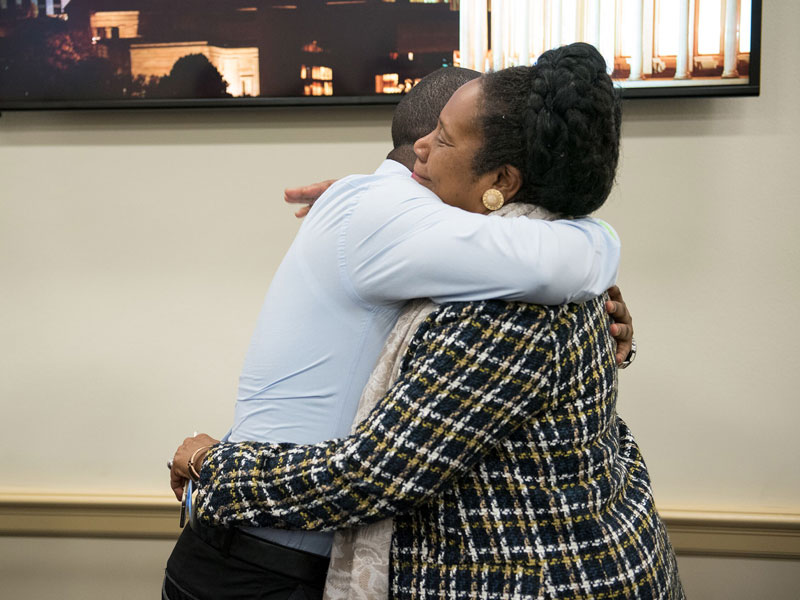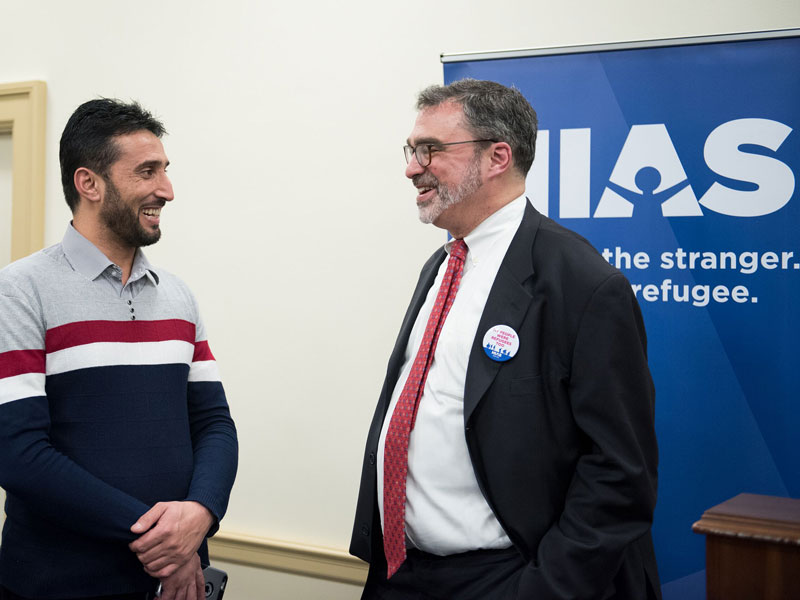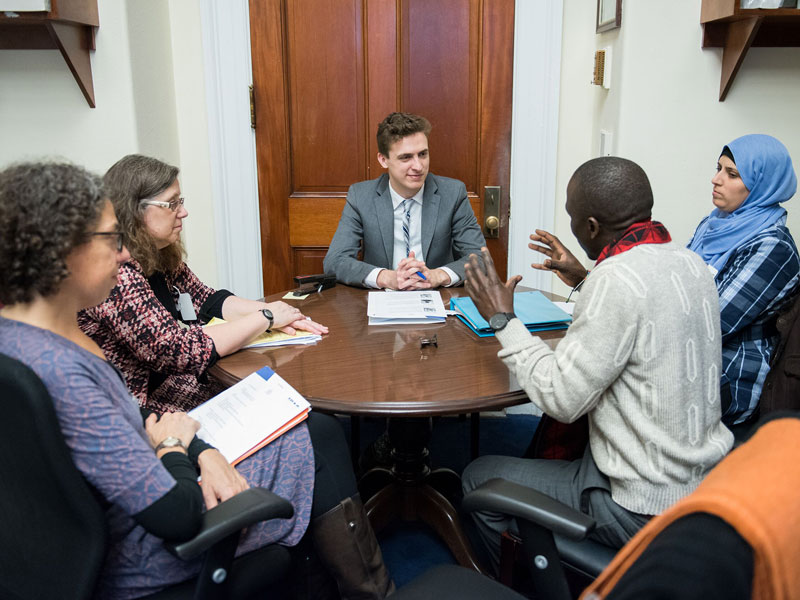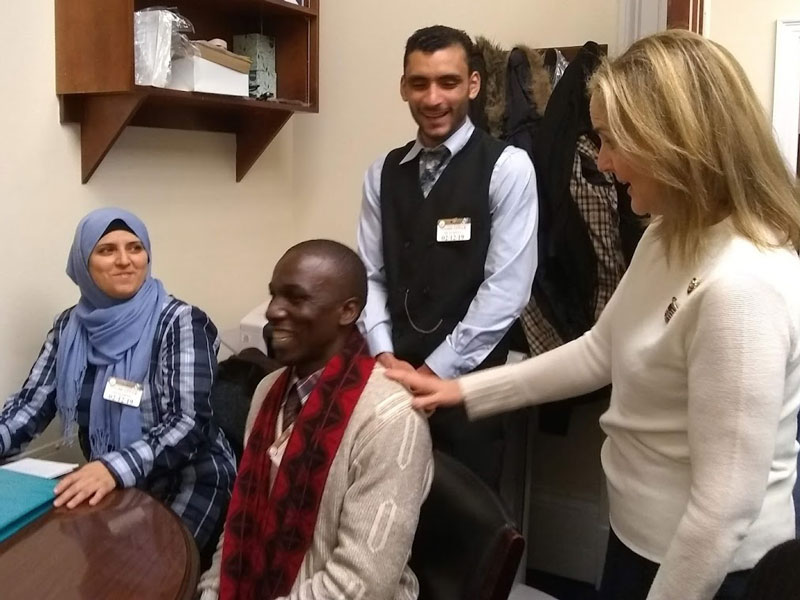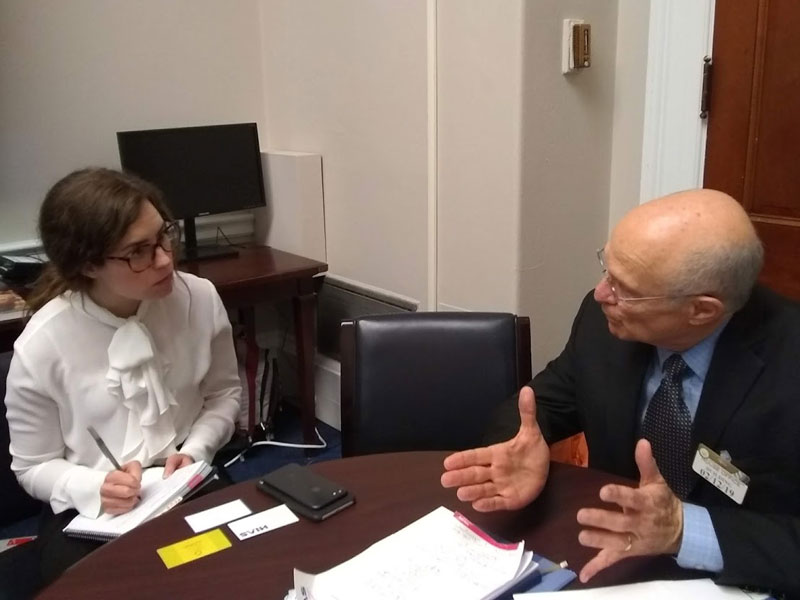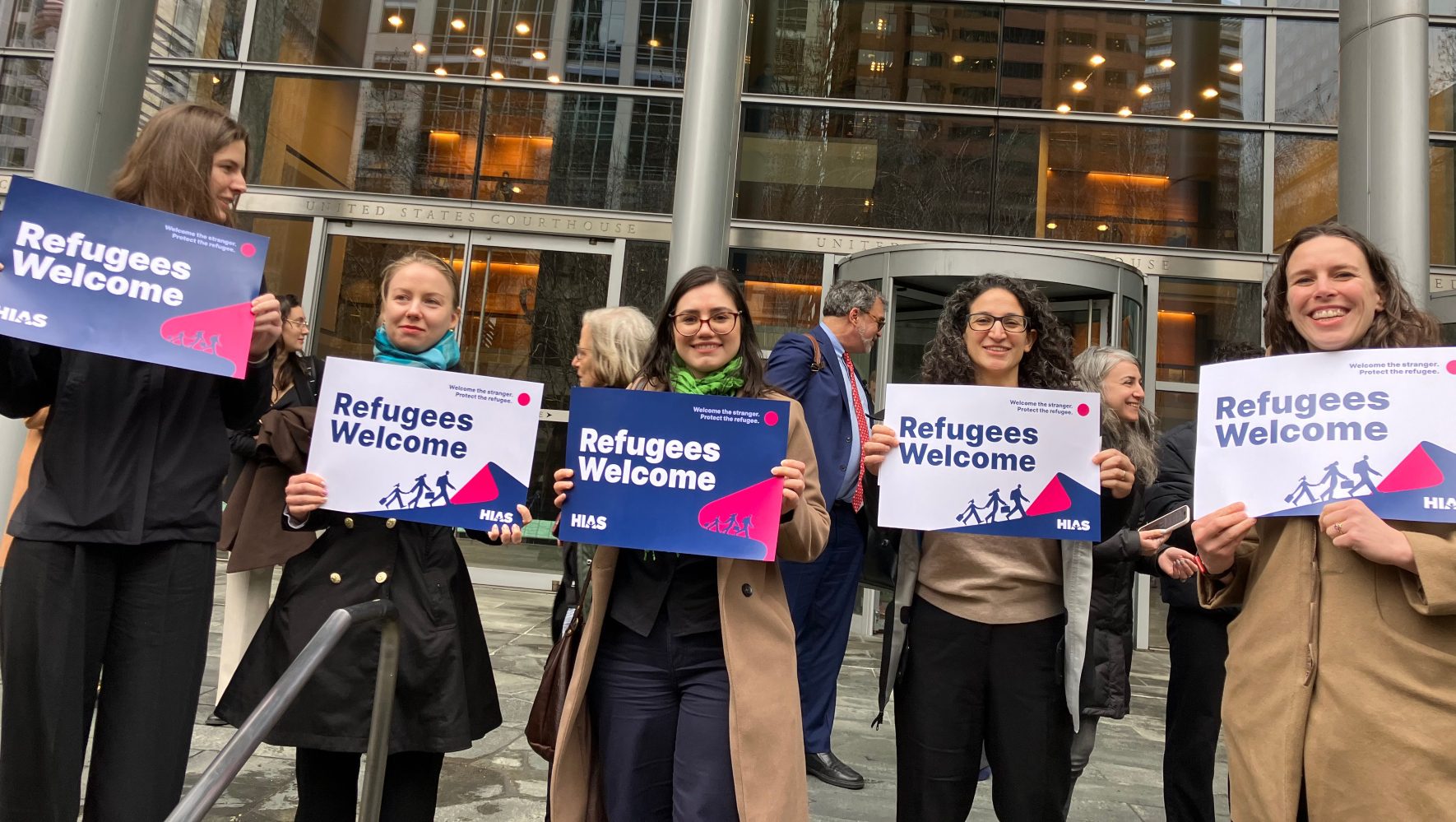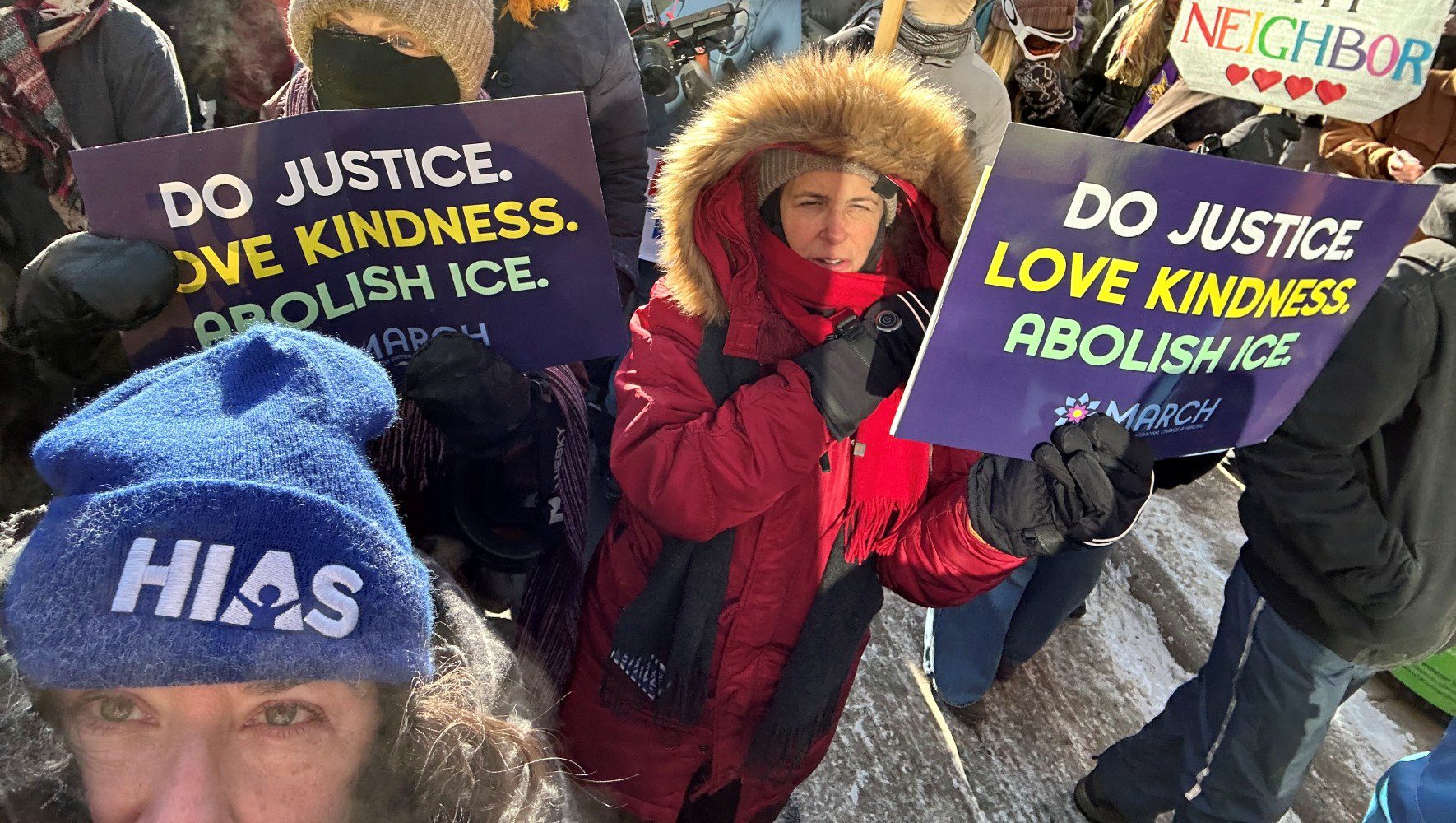HIAS on the Hill: Advocacy Days in D.C.
By Sharon Samber, HIAS.org
Feb 15, 2019
Holding packets of information while walking across Capitol Hill, the group of grassroots leaders and former refugees was ready to talk about refugees and asylum seekers and how America should be doing more for them.
More than 50 people from around the country came to Washington, D.C., this week to advocate for refugees in the offices of senators and representatives. HIAS organized the two-day conference where participants heard from experts, studied refugee and asylum policy in depth, and then met with lawmakers to try to help them understand why they should speak out in support of refugees and asylum seekers.
“It is so important to have face-to-face meetings and for members of Congress to hear from constituents who care about these issues,” said Naomi Steinberg, HIAS Senior Director for Policy and Advocacy.
The advocates met with long-time allies as well as with some who may not be as supportive. They also had the chance to speak with some new members of Congress who may not yet have much knowledge on the issues. Key policy points that HIAS advocates discussed included how the U.S. should resettle more refugees than it does currently, and the need to treat asylum seekers more humanely.
Over the last year, these advocates collaborated with HIAS staff to deepen their knowledge and to develop strategies in their home states to protect the rights of refugees and asylum seekers.
Among the participants was a group with a special perspective. Former refugees from Syria, Afghanistan, Democratic Republic of the Congo, Burundi, Bhutan, Russia, and Uganda joined the advocacy training sessions to share their experiences and reinforce how powerful personal narrative can be in making the case for refugee rights.
Mohammed Ghanem is 20 years old and has only been in America for a few years, but this HIAS event was not his first foray into advocacy. A refugee from Syria, and now a resident of Charlotte, N.C., Ghanem first took part in a refugee advocacy program in 2017. He realizes the importance of sharing stories with those in government as he constantly thinks of friends and family back in Syria.
“This is the only way I can help them,” Ghanem said.
Khalid Naseri worked with the U.S. Army in Afghanistan and came to the U.S. under the Special Immigrant Visa (SIV) program, but he has friends who are stuck in the process and have not been able to find safety in the U.S. back home. Currently, 19,000 Afghans are in some stage of applying for SIVs.
Naseri lives in Madison, Wisconsin, with his wife and two children but he worries about family back in Afghanistan. “I want to go back and bring peace,” he said. “That is my dream.”
During a Capitol Hill reception organized for the participants on Monday evening, a number of elected representatives came by to express their support, including Rep. Jan Schakowsky (IL), Rep. Brad Schneider (IL), Rep. Ben McAdams (UT), Rep. Judy Chu (CA), and Sen. Chris Van Hollen (MD).
But despite the presence of the well-known lawmakers, the spotlight was stolen by participant Kassim Hussein Rajab, who addressed the hushed crowd and told his story of spending 10 years in refugee areas in Uganda. There, Rajab – a refugee from the Democratic Republic of Congo – met Texas Congresswoman Sheila Jackson-Lee who told him to not lose hope. Kassim turned to Jackson-Lee, who had just come to the reception, and smiling through tears said, “I never lost hope,” as the two embraced.
During congressional office visits Tuesday, the HIAS groups fanned out to make the case for refugee resettlement and making the asylum system better. Eric Goldman has been involved with HIAS for several years and last summer started Utah Jews for Refugees. With over 50 members, the group works to continue the statewide support for refugees. Goldman sees changes for the better as more refugees come to Utah.
“Salt Lake City is a different city than it was ten years ago. It’s more cosmopolitan,” he said at one meeting.
Goldman and the other top grassroots advocates were planning on ways to continue working on these issues in their home states.
Speaking with a staffer in the office of Congresswoman Madeleine Dean (PA), Cathryn Miller-Wilson, Executive Director of HIAS PA, brought up the need for an increase in the number of refugees admitted to the U.S. next year, as well as the local case for refugees’ positive impact on local economies. Asmaa Diab told some of her personal story of leaving Homs, Syria, and coming to live in Northeast Philadelphia.
Later, Diab reflected on her storytelling. She said she leaves out some parts of her story because they make her cry. It has been eight years since Diab, who attended the training with her son Ammar, has seen her parents except for the occasional video call. While thankful for her family, and all of the help from HIAS PA, she admits she is sad.
“I miss my country,” she said. “My heart is broken.”
But she said telling her story to Congressional staffers did help, and she thought she connected with people in the Pennsylvania offices and showed her resilience.
“We try to start again. We are strong,” she said. “We can do it.”
If you want to become more involved with HIAS, visit our Take Action page.
